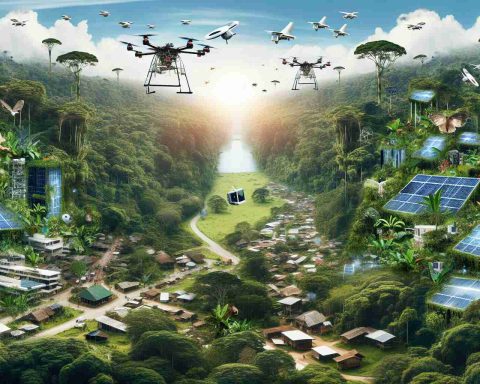The Canary Islands are set to transform into a leading center for Artificial Intelligence (AI) and innovation in the national tourism sector through the groundbreaking Spain Living Lab (SLL) project. This ambitious initiative aims to gather data from tourists at their origin to enhance travel destinations and offer personalized solutions with a strong focus on sustainability. Moreover, it intends to share cutting-edge knowledge and innovative applications with smallto medium-sized enterprises (SMEs) and the hotel sector, leveraging AI technologies.
As part of this project, 450 travel agencies across Spain and Europe will serve as experimental laboratories. The utilization of AI will facilitate the development of new concepts aimed at improving employee efficiency and visitor experience. Additionally, virtual redesigns of tourist spaces via digital twins will explore better sustainability practices and effectively manage crowds during large events for enhanced safety.
This public-private collaboration, initiated on August 1 and extending until December 31, 2025, is spearheaded by two Canary Islands universities and the SME Scala. It is committed to hiring 75 highly skilled professionals, such as data scientists and software development experts, to capture and nurture talent.
Furthermore, this project aspires to establish a Technology Center in the Canary Islands by 2026, focused on AI research and development. The long-term vision includes fostering university-business partnerships and creating startups, positioning the Canary Islands as a global leader in tourism-related AI research.
The Canary Islands are positioning themselves as a pioneering hub for Artificial Intelligence (AI) within the tourism sector, further enhancing their appeal as a tourist destination. With the increasing integration of technology in travel and hospitality, the region is leveraging its unique geographical and cultural characteristics to attract investment and foster innovation. The Spain Living Lab (SLL) project is just the beginning of a broader vision to reshape how tourism is experienced and managed, through sophisticated AI applications.
Key Questions and Answers:
1. What specific AI technologies will be utilized in the tourism sector?
AI technologies such as machine learning, predictive analytics, and natural language processing will be employed to analyze tourist behavior and preferences. This will allow personalized experiences, such as tailored recommendations for activities, restaurants, and accommodations.
2. How will the initiative benefit local businesses?
Local SMEs will gain access to AI tools and data insights that can enhance their operations, improve customer service, and help them compete on a larger scale. The initiative aims to provide training and resources to empower these businesses to adopt innovative practices.
3. What measures will be taken to ensure data privacy?
The project is committed to upholding strict data privacy regulations. Personal information will be collected and processed in compliance with the General Data Protection Regulation (GDPR), ensuring tourists are informed and have control over their data.
Key Challenges and Controversies:
– Integration with Existing Infrastructure: One of the primary challenges will be integrating AI technologies with existing systems in hotels and travel agencies. This requires significant investment in infrastructure and training.
– Skepticism Towards AI: There is a degree of skepticism among both tourists and local operators regarding the reliance on technology in personal experiences. Overcoming this concern will be critical for the successful implementation of AI solutions.
– Sustainability vs. Technology: While AI can enhance sustainability efforts, there is a concern that technology might overshadow traditional practices that are environmentally friendly. Balancing innovation with sustainable tourism practices will be essential.
Advantages of AI in Tourism:
– Enhanced Visitor Experiences: AI can provide personalized services and improve visitor interactions, creating more memorable and satisfying travel experiences.
– Operational Efficiency: The application of AI can streamline processes in hospitality, reducing wait times and optimizing resource management.
– Data-Driven Decisions: Using AI allows for better data collection and analysis, enabling businesses to make informed decisions that can drive growth and adaptability in changing markets.
Disadvantages of AI in Tourism:
– High Costs: Implementing AI technologies requires significant upfront investment, which may not be feasible for all businesses.
– Job Displacement: There is concern that automation and AI could lead to reduced job opportunities in the tourism sector, particularly in entry-level positions.
– Dependence on Technology: Over-reliance on AI tools may diminish the personal touch that many travelers seek in their experiences.
Future Prospects:
The Canary Islands endeavor to establish themselves as a benchmark in AI-driven tourism innovation. By 2026, they aim to launch a dedicated Technology Center, fostering not only research but also nurturing start-ups that can contribute to the tourism and tech ecosystem. This collaborative effort among universities, SMEs, and government is set to transform the tourism landscape while prioritizing sustainability and visitor satisfaction.
For more information on related initiatives, visit Canary Islands Tourism.

















